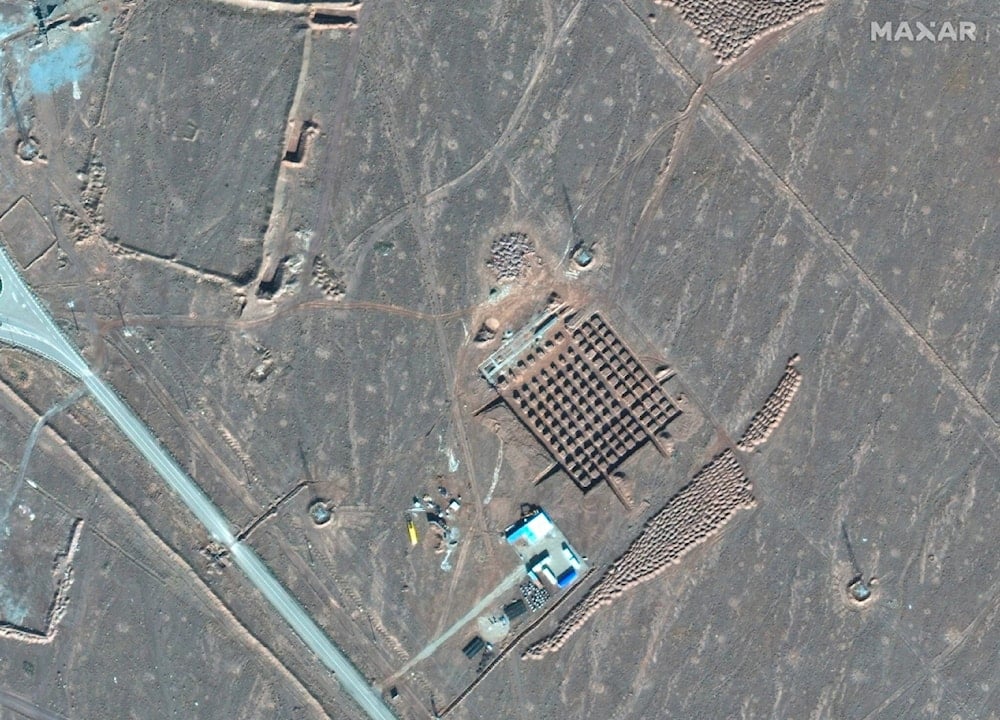Iran agrees to increased monitoring as uranium enrichment escalates
The IAEA confirmed that Iran has agreed to increase the frequency and intensity of inspections at the facility.
-

This December 11, 2020, satellite photo by Maxar Technologies shows construction at Iran's Fordo nuclear facility. (Maxar Technologies via AP)
Iran has agreed to enhanced monitoring measures by the UN nuclear watchdog at its Fordo enrichment plant (FFEP) following plans to dramatically increase its production of highly enriched uranium, according to a report by the International Atomic Energy Agency (IAEA) seen by AFP on Friday.
The IAEA recently disclosed that Iran has revamped its Fordo facility, located south of Tehran, allowing for a significant escalation in uranium enrichment levels.
The changes will enable Iran to produce over 34 kilograms of uranium enriched up to 60% purity per month, compared to 4.7 kilograms previously. This level of enrichment brings Iran closer to the 90% threshold required for weapons-grade material.
The IAEA has urged Tehran to implement safeguards with urgency, while European powers have demanded that Iran "immediately halt its nuclear escalation." In a confidential report, the IAEA confirmed that Iran has agreed to increase the frequency and intensity of inspections at the facility.
Despite these assurances, Iran continues to assert its right to nuclear energy for peaceful purposes, denying any intention to develop nuclear weapons. However, the IAEA has pointed out that Iran remains the only non-nuclear-weapon state enriching uranium to such high levels.
Read more: Iran could militarize nuclear program amid pressures: Araghchi
Last month, Iran announced the launch of "new and advanced" centrifuges, which it described as a response to an IAEA board resolution hat censured Tehran for alleged lack of cooperation.
IAEA chief Rafael Grossi described Iran's recent actions as a "clear message" in reaction to what it perceives as external pressure.
European condemnations and prospect of sanctions
Britain, France, and Germany have strongly condemned Iran's latest moves, with the three nations urging Tehran to reverse course.
In a letter to the UN Security Council, they raised the possibility of reinstating sanctions to prevent further developments in Iran's nuclear program.
Anouar El Anouni, the EU's foreign policy spokesperson, echoed these concerns, calling Iran's enrichment activities "extremely concerning" and a significant escalation in an already fraught situation.
In response, Iran said that the E3's claims were "baseless" and argued that their stance ignores Iran's sustained efforts to uphold the JCPOA agreement, despite the US' withdrawal in 2018 and the imposition of severe sanctions.
In a letter to UN Secretary-General Antonio Guterres and Security Council President Linda Thomas-Greenfield, Iran's ambassador to the United Nations Saeed Iravani said that Iran remains committed to its obligations under the Nuclear Non-Proliferation Treaty (NPT), which guarantees the inalienable right of all States Parties to develop nuclear energy for peaceful purposes.
He asserted that any threats to invoke the so-called "snapback" mechanism to reimpose sanctions are counterproductive and would elicit a firm response from Iran.

 3 Min Read
3 Min Read








